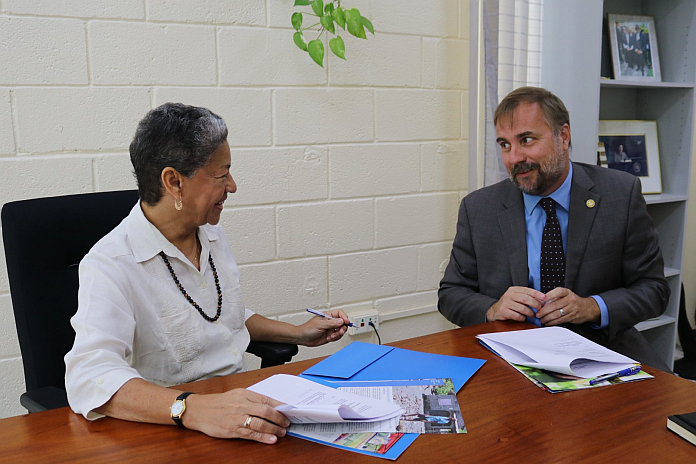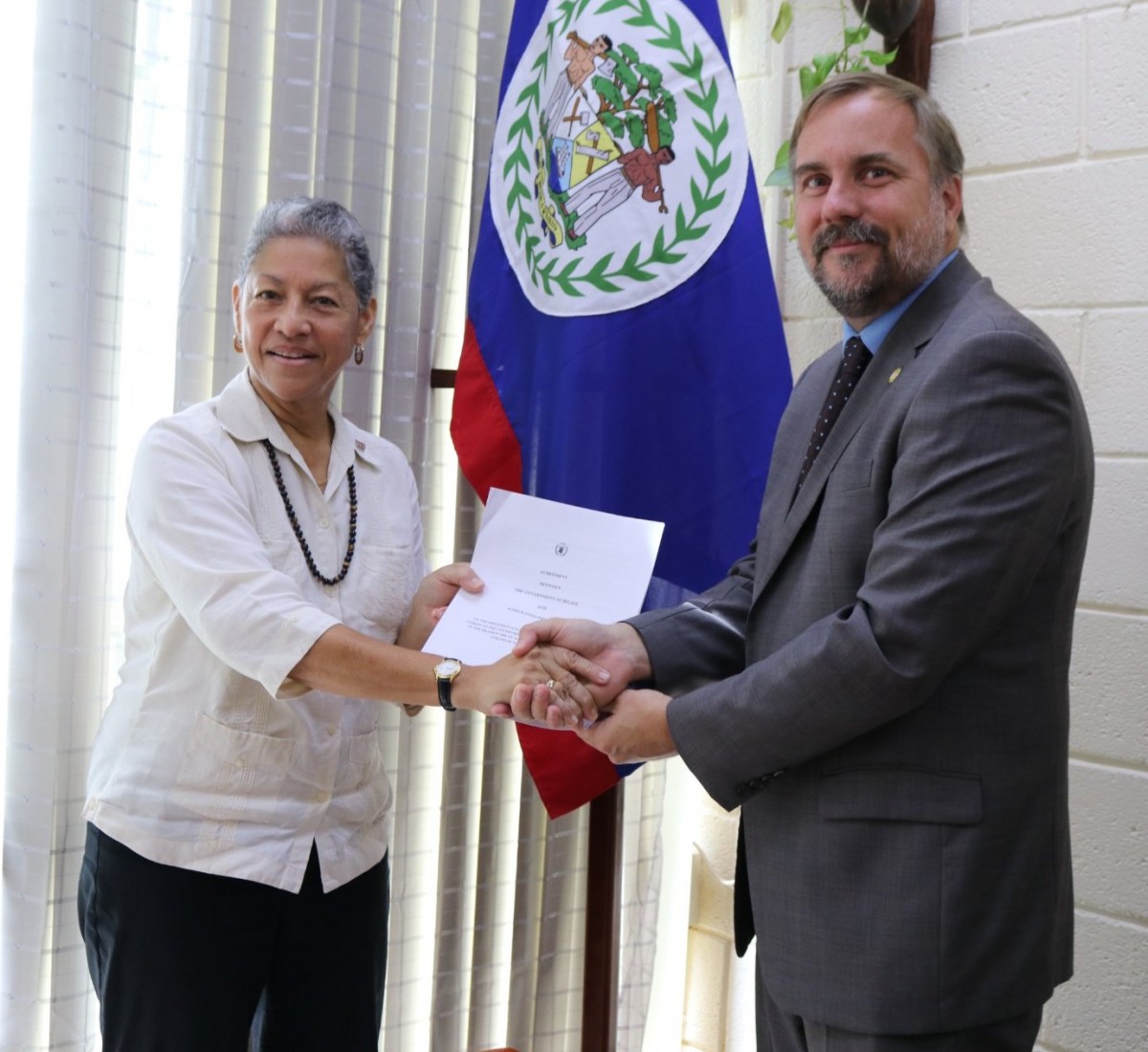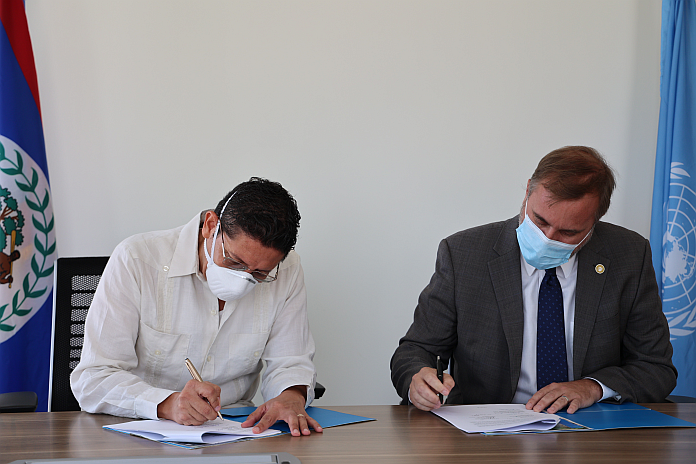By Government Press Office | BELIZE
BELMOPAN, Belize – The government of Belize has partnered with the United Nations World Food Programme (WFP) Caribbean Multi-Country Office to link future climate risk insurance pay-outs to the provision of cash assistance to the people most affected following a significant climatic event.
WFP will provide a top-up of US$100,000 per year towards the premium for the government’s CCRIF SPC’s Tropical Cyclone and Excess Rainfall Policies for 2022/23 and the 2023/24 policy periods. This support allows for a portion of a pay-out from either policy to be allocated for cash assistance to be delivered through national social protection programmes to vulnerable people who are negatively impacted by a storm, a hurricane, or an intense rainfall event.
Belize is highly vulnerable to the impacts of natural hazards and the effects of climate change and ranks eighth out of 167 countries for climate risk. The country is highly exposed to hurricanes, storms and associated flooding, wind damage, and storm surge, especially in coastal areas and Belize City. The country’s low-lying terrain exacerbates the effects of flooding and sea-level rise. Belize is also at risk of extreme temperature events. The country incurs an estimated average loss of 4 percent of GDP with each disaster.

This initiative, with financial support from the European Civil Protection and Humanitarian Aid Operations (ECHO), complements ongoing work between the Government of Belize, WFP and other UN agencies as part of the UN Joint SDG Fund programme to strengthen the ability of national social protection systems to be more responsive in times of crisis.
“After having been impacted by an extreme weather event, we see a rapid worsening of living conditions of already vulnerable households. With this additional disaster risk insurance option, the government can expeditiously provide targeted temporary social protection assistance to affected households,” said minister Dolores Balderamos-Garcia of the ministry of human development, families, and indigenous peoples affairs
Osmond Martinez, chief executive officer at the ministry of economic development stated:
“This collaboration is significant not only for our capacity building towards shock-responsiveness but also for our relationship with development partners. It signals a strengthening alliance towards a prepared and proactive Belize, and we look forward to more joint work like this as we advance with the SDG Fund Joint Programme.”
This innovative approach is an integral part of disaster preparedness efforts that will enable rapid support to affected populations in the form of cash payments to meet food, health and other needs following a disaster. It is also made possible through the partnership with the European Civil Protection and Humanitarian Aid Operations (ECHO) and contributions from internal WFP innovation funds.

Minister of state, Christopher Coye, noted: “Weather-associated natural disasters in Belize not only affect economic activity but also compromise fiscal sustainability, as these events tend to be followed by an increase in debt-financed government spending on emergency assistance and reconstruction. Having increased CCRIF coverage and earmarking the incremental payouts, particularly for relief to the most vulnerable, helps to mitigate economic derailments due to unexpected weather and other shocks.”
“The partnership with the government of Belize is the second of its kind in the English-speaking Caribbean. We are encouraged by the leadership shown by the government of Belize to put the needs of people first and expect this to enhance the response and recovery efforts in times of crisis,” said Regis Chapman, WFP representative and country director of the WFP Caribbean Multi-Country Office in Barbados. “This approach is part of a wider strategy to strengthen social protection, which will ensure that those most affected receive the support they need in the shortest possible time. It adds layer to ongoing national efforts to improve the social protection system to be more shock-responsive.”





